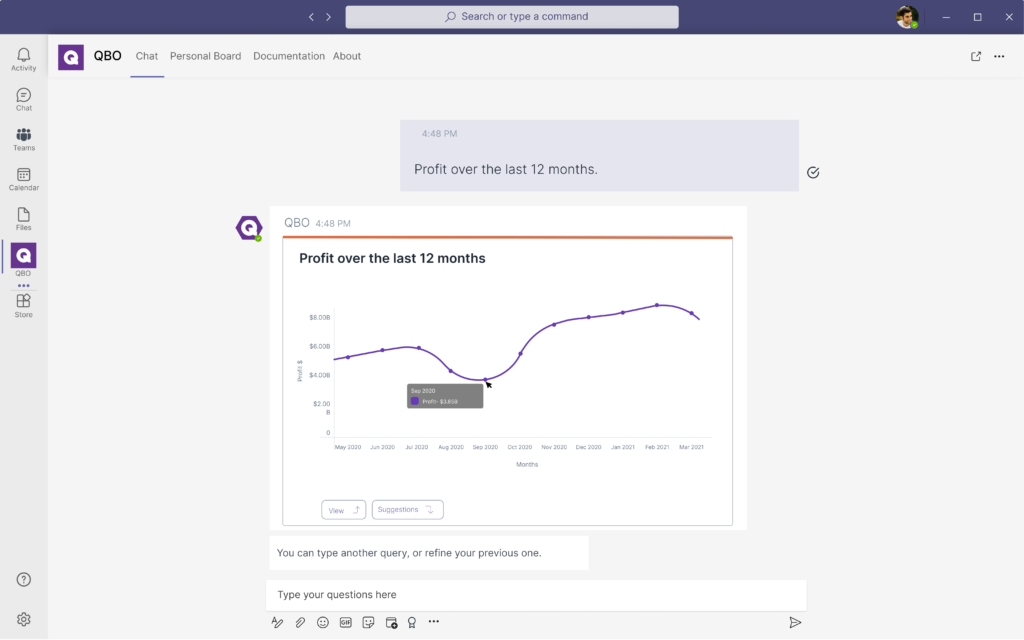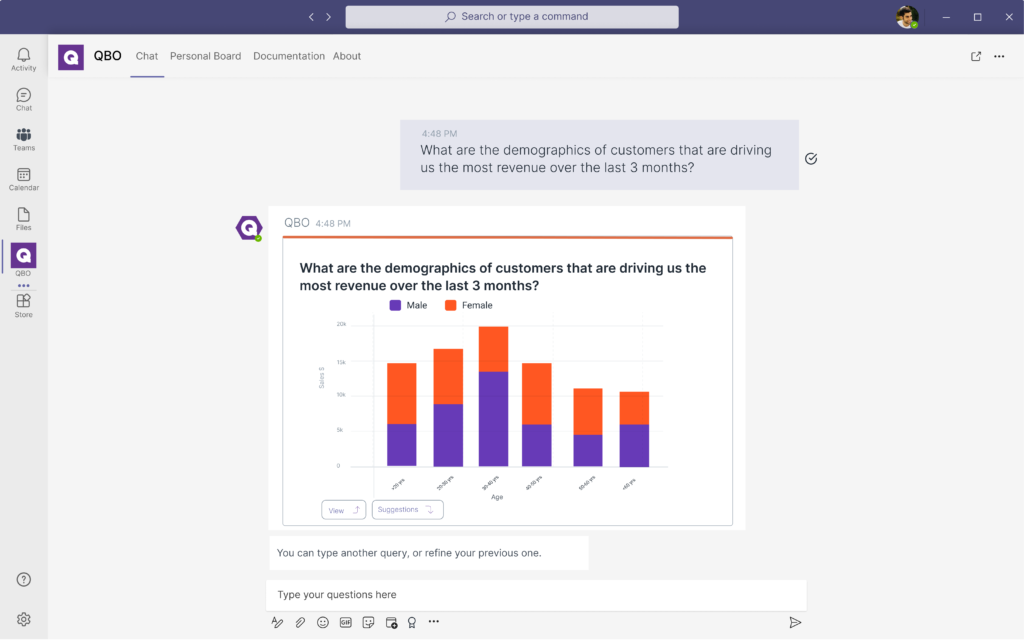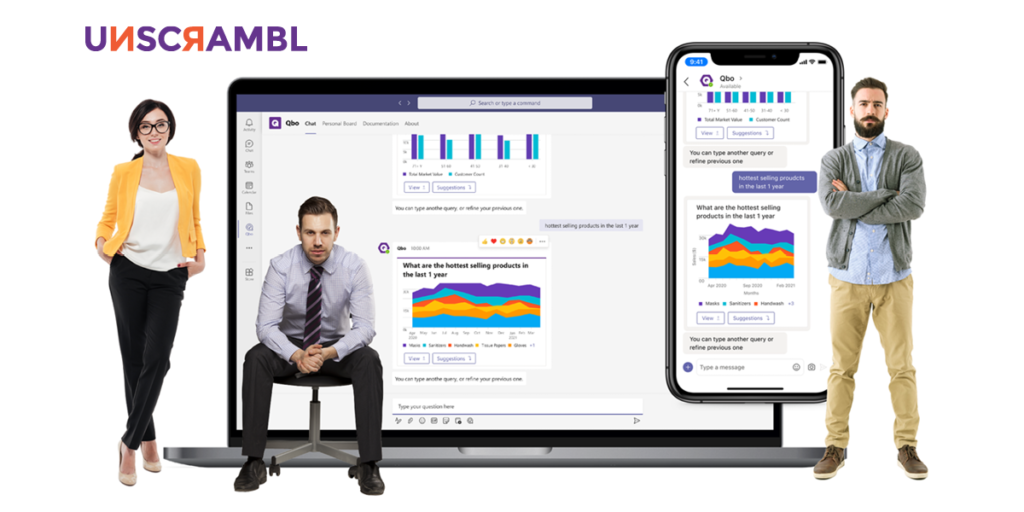 7 Minutes
7 Minutes

What A Modern Analytics Team Looks Like (And The Skills Needed For Success)
As the business landscape continually evolves due to the acceleration of digitization, companies today are generating, storing, and processing enormous amounts of data.
Better decision making is undoubtedly the end goal, however, organizations spend a majority of the time accessing and preparing their data, but not enough on gathering insights that drive business results.
While business intelligence tools have evolved to provide descriptive reports and visually appealing dashboards, the empowerment of non-technical users is still not sufficient.
There is still a necessary reliance on teams of data analysts and experts to effectively operate the BI tools, not to mention the steep learning curve present for widespread adoption.
The race towards the democratization of data is getting heated and data analytics teams will have to evolve to help organizations better establish a data-driven culture.
Organizations will need to rethink the role each member plays as well as the necessary skills necessary for them to effectively utilize the BI tools of tomorrow to drive growth & enact change.
Why You Need To Evolve Your Data Analytics Team
As the world accelerates towards the Internet of Things (IoT) and considering the lasting impact of COVID-19 which has driven organizational digitization plans into overdrive, the need for accurate and faster insights has never been more pressing.
Across the myriad of industries, critical questions are being asked and game-changing decisions will have to be made.
“How do I effectively reach my customers in an era where working from home will soon become the norm?”
“How do I safely expand my operations in the region without taking on too many financial risks?”
“Which products should I pivot my production efforts towards this upcoming financial year?”
“Are my customers satisfied with our customer service and how do we improve it?”
To obtain insights to answer these questions definitively and take decisive action, faster insights across the entire organization will be needed.
The modern data analytics team will be looked towards as not just stewards of an organization’s data, but problem solvers and business decision-makers.
Next-Generation BI Requires A Next-Gen Analytics Team
With the rise of new business intelligence tools powered by conversational analytics, every individual, from the boardroom to the storefront now has the potential to effectively gain insights into their data.
In fact, around 67% of executives in management positions highlighted being uncomfortable utilizing data from their tools and resources. This is a pervasive problem that can be solved with conversational analytics BI solutions.
Powered by machine learning and natural language processing, conversational analytics allows users to ask intuitive questions to their data as they would in a normal conversation.
Questions such as:
“How much profit have we made over the last 12 months?” “Which of our store branches are driving the most profit over the last quarter?”
Can be asked by any user, without the need to handle any complex data collection, preparation, or processing at all. This helps organizations to effectively accelerate the adoption of BI to make better and faster data-driven decisions.
Contrast this with the old way of doing things where teams of dedicated data analysts are working in separate departments, siloed away from the other business units.
The old way results in a disconnect that disincentivizes data collaboration as well as the use of business intelligence to solve real business problems – as shown by just a 17% deployment rate of BI solutions across organizations.
However, utilizing the next generation of BI solutions goes beyond just investing in the tools themselves.
While conversational analytics promises to revolutionize the way organizations use business intelligence, data analytics teams will have to evolve and adopt new approaches to effectively harness its power.
In this article, we will be taking a look at the 4 roles a modern analytics team requires and the necessary skills to achieve better decision-making in today’s increasingly competitive landscape.
4 Key Roles Of The Modern Analytics Team
The modern analytics team will have to go beyond just possessing data analysis and programming skills, there will be a need to also integrate the domain expertise of the various business units.
However, an effective analytics team will need to comprise of different unique roles working together to achieve success, from insights generation to solution implementation. Each of these roles can be fulfilled by a team of executives or even a single individual.
Thanks to the convenience and power of conversational analytics such as Qbo, the barriers to BI deployment and utilization are removed. Everyone is now empowered to embody and fulfill multiple roles of a modern analytics team.
1. The Business Optimizer
Having a clear understanding of existing business processes is key to effectively using insights to drive commercial results.
The business optimizer plays an important role in identifying key operational gaps and opportunities where data can be leveraged to resolve long-standing problems. They can clearly define existing challenges and articulate to the BI tool (and their team) what efficiency roadblocks exist in their business unit, from legacy issues to dynamic situations that happen in real-time.
For example, a business optimizer in the marketing department could quickly define the problem of too much advertising spend on their marketing channels.
This allows them to swiftly ask key questions to their BI tool such as:
“Which social media channel has the lowest cost per acquisition over the last 6 months?” “What are the demographics of the customers that are driving us the highest profit over the last quarter?”
The insights gathered can then be utilized to optimize how the ad campaigns are performing, to drive better results.
2. The Business Leader
In the analytics team, the business leader will be the liaison between the team and the management.
Their responsibilities include communicating with key leaders across the organization to better understand the overall business goals, identify key areas of improvement as well as the KPIs that need to be fulfilled.
This allows the analytics teams to effectively target the right metrics and formulate the right strategies around how data should be effectively analyzed to glean the right insights that will move the needle.
The business leader of the team will be constantly thinking about the big picture and how best to improve ROI for the organization. A business leader in the retail industry can ask insightful questions such as:
“Which stores across the country are driving the least profit over the last financial year?”
“Which products have the highest margins and are consistently sold out before the end of each restocking period?”
The business leader can then present these insights to the management and work with them to drive tangible business results.
3. The Business Innovator
The business innovator is a visionary in your team. Their mission is to imagine how data can be used to drive innovative change in your organization and develop new possibilities for the business to grow.
Equipped with an experimental mindset supported with keen analytical capabilities as well as business acumen, they will be able to identify new revenue opportunities.
This means effectively using the datasets on hand, their accumulated knowledge as well as trends in the industry to identify new areas where a calculated and data-driven risk can be taken.
For example, in the manufacturing industry, business innovators will be asking predictive questions such as:
“Which state should we expand operations to for the fastest ROI?”
“Which production line will be able to handle a 50% increase in production capacity over the next 3 months?”
With these insights, the business innovators will be able to share with the team opportunities that can be tackled and exploited to keep the business moving forward.
4. The Change Driver
The change driver plays an important role not only in the analytics team but also throughout the organization.
They are evangelists that actively strive to foster a data-driven culture with the organization. Their responsibilities include:
- Organizing data literacy sessions across the various departments
- Setting & achieving internal employee-driven goals to allow for better appreciation of business intelligence
Change drivers are key to ensuring an organization will seek to effectively harness the power of business intelligence effectively and consistently throughout their daily work.
The Core BI Skills Necessary For A Modern Analytics Team
An effective analytics team requires the development of core business intelligence skills to help users utilize the BI tools better and drive business results that matter. Here are four skills to foster in your team.
1. Critical Thinking
Also known as developing problem-solving skills, users will need to effectively link concepts, business knowledge, and various factors together to ask intelligent questions to their data.
By firstly understanding the challenge they want to solve as well as the type of data that needs to be queried and analyzed, teams will be able to gain accurate and actionable insights.
2. Data Reporting & Storytelling
While BI tools such as Qbo will deliver insights in intuitive and beautiful visualizations, users will still need to communicate the findings to their departments.
Data reporting and storytelling are two skills that are mission-critical to grasp in order to effectively communicate insights and visualizations to decision-makers in a way that is engaging, impactful, and relevant to the business needs.
Learn how to develop your data storytelling skills here.
3. Descriptive & Diagnostic Thinking
A descriptive analysis allows users to effectively use current and real-time data to gain insight into what is happening to the business in the present.
Diagnostic analysis on the other hand answers the question of why an event or situation is happening. It allows users to better understand cause and effect in their business operations.
4. Predictive & Prescriptive Thinking
With predictive analysis, users will be able to utilize data to predict likely outcomes of future potential decisions. Particularly useful in organizations where big data is being utilized, these forecasts are critical to driving both real-time and long-term decision making.
Prescriptive analysis on the other hand equips users with the knowledge of what is needed to drive change. This can be as direct as asking your data for insights into the actions that are required to drive a particular outcome.
Build Your Analytics Team Today With Qbo
Powered by conversational analytics, Qbo goes beyond being just your personal data analyst. It is a full suite solution that simplifies the way you access, generate and consume data & insights.
With Qbo, you can reap the benefits of data democratization and focus on developing the core skills and traits a modern analytics team requires.
Embark on a 14-day free trial and transform your organization with better data-driven decision-making!










